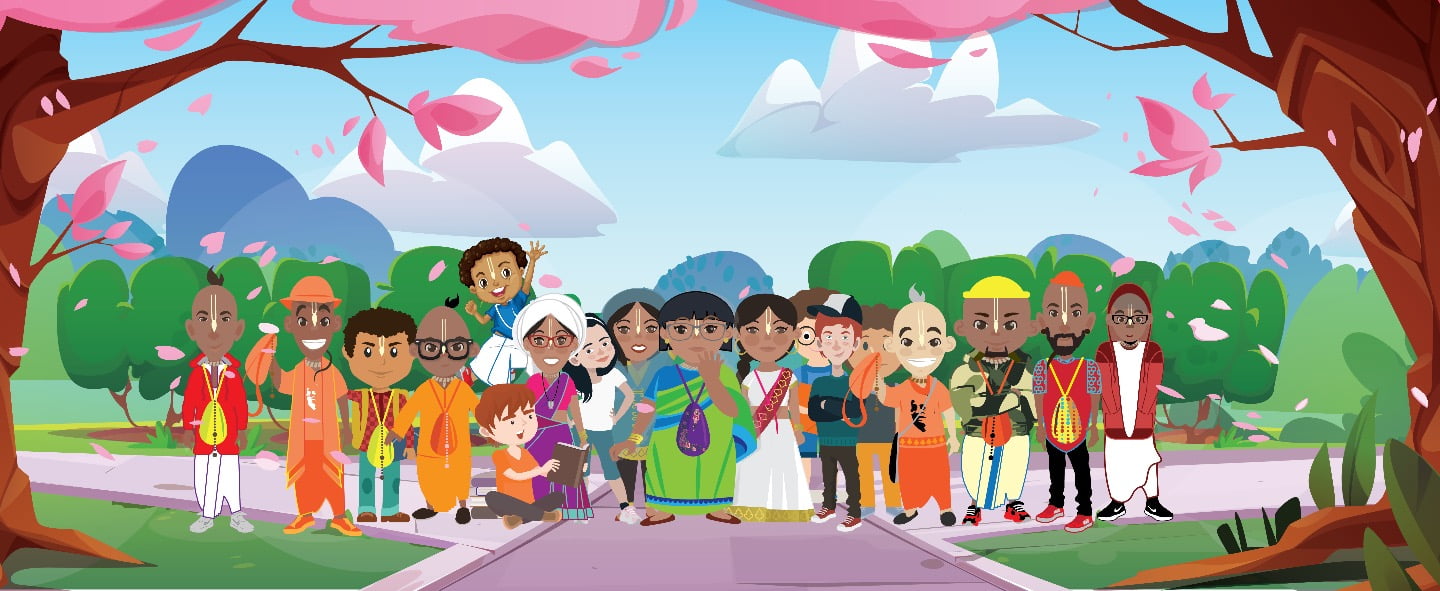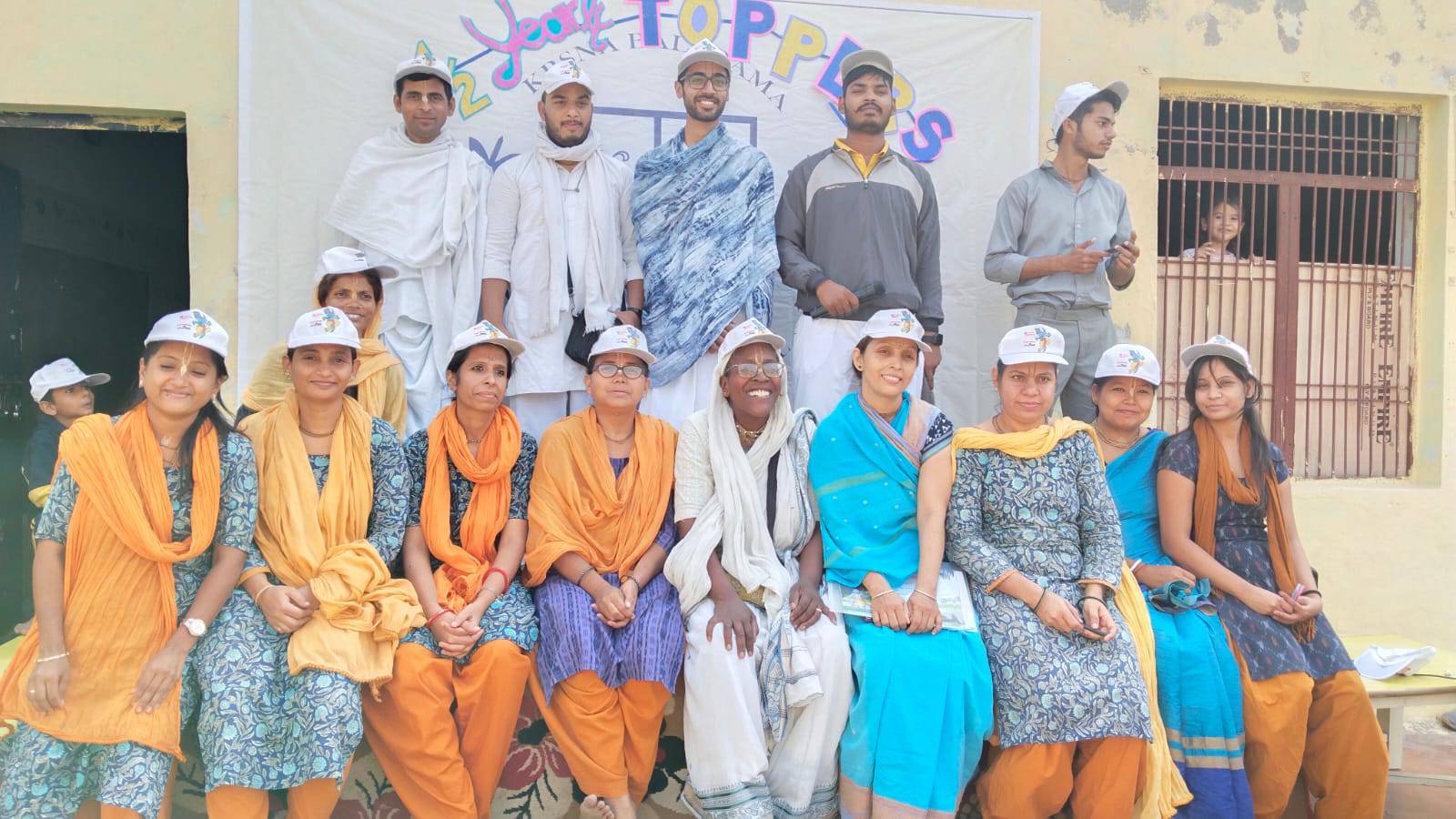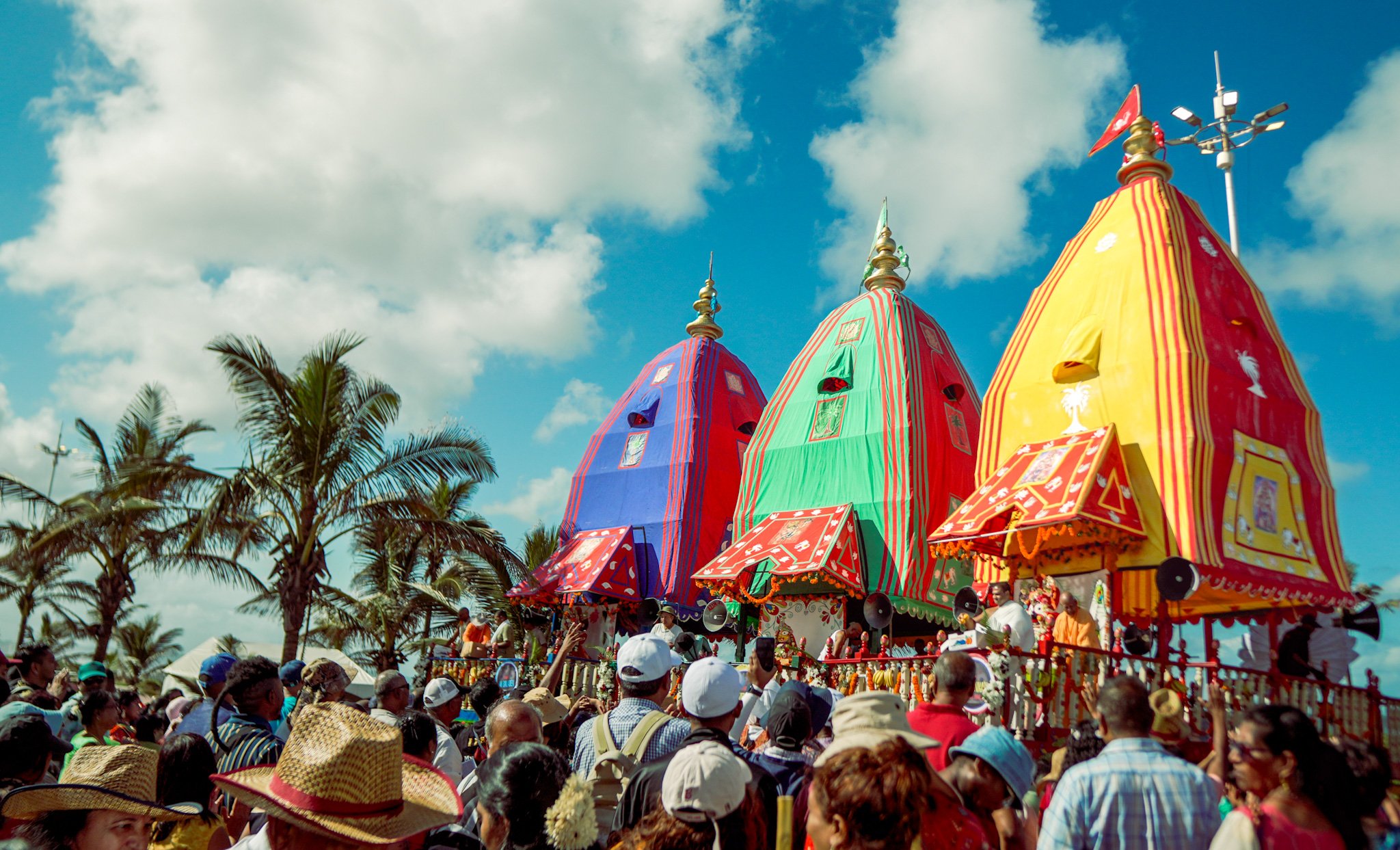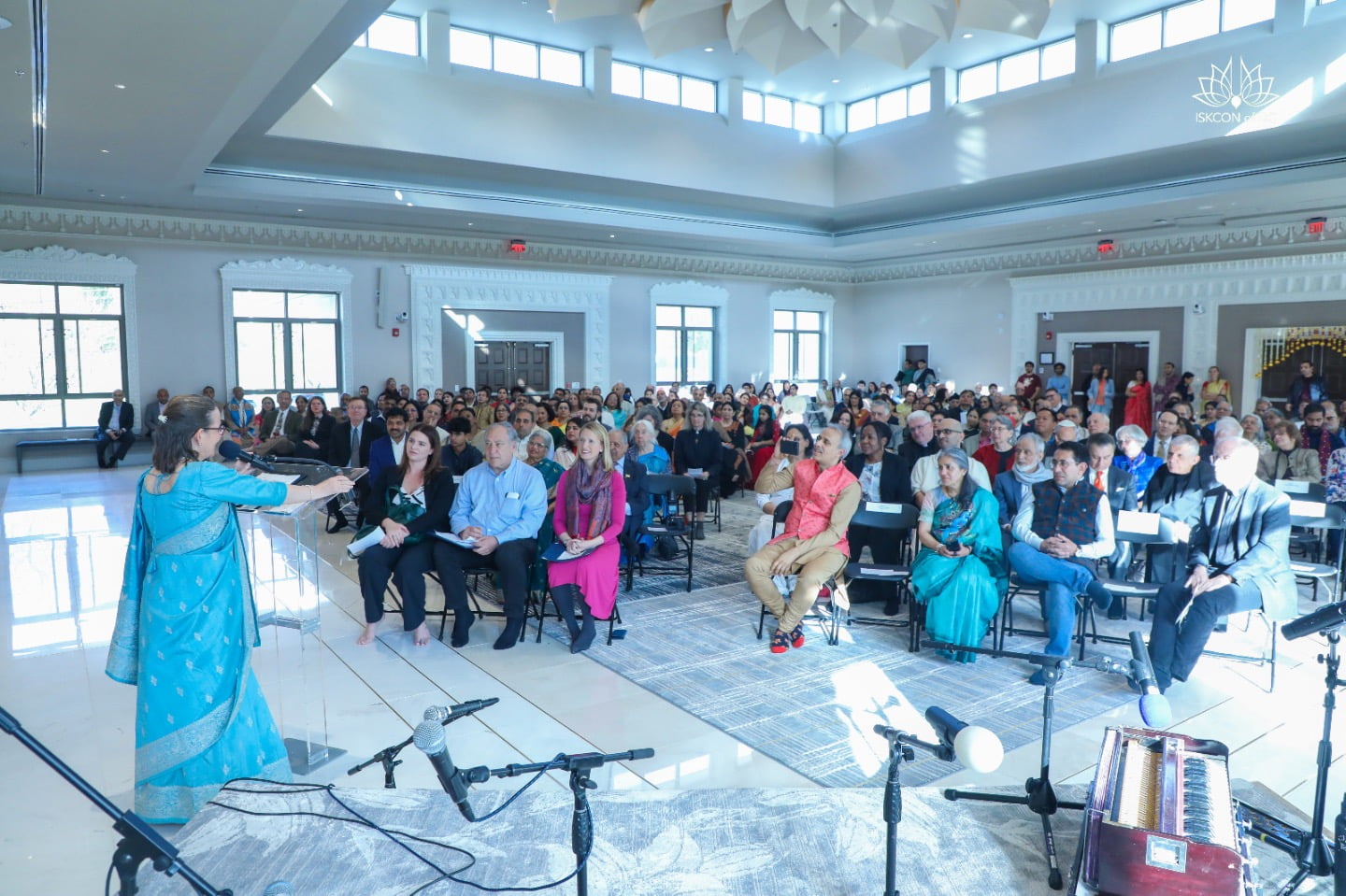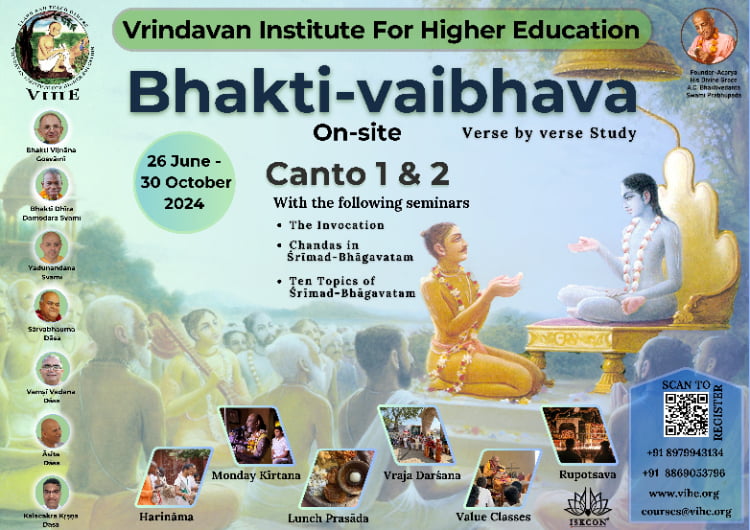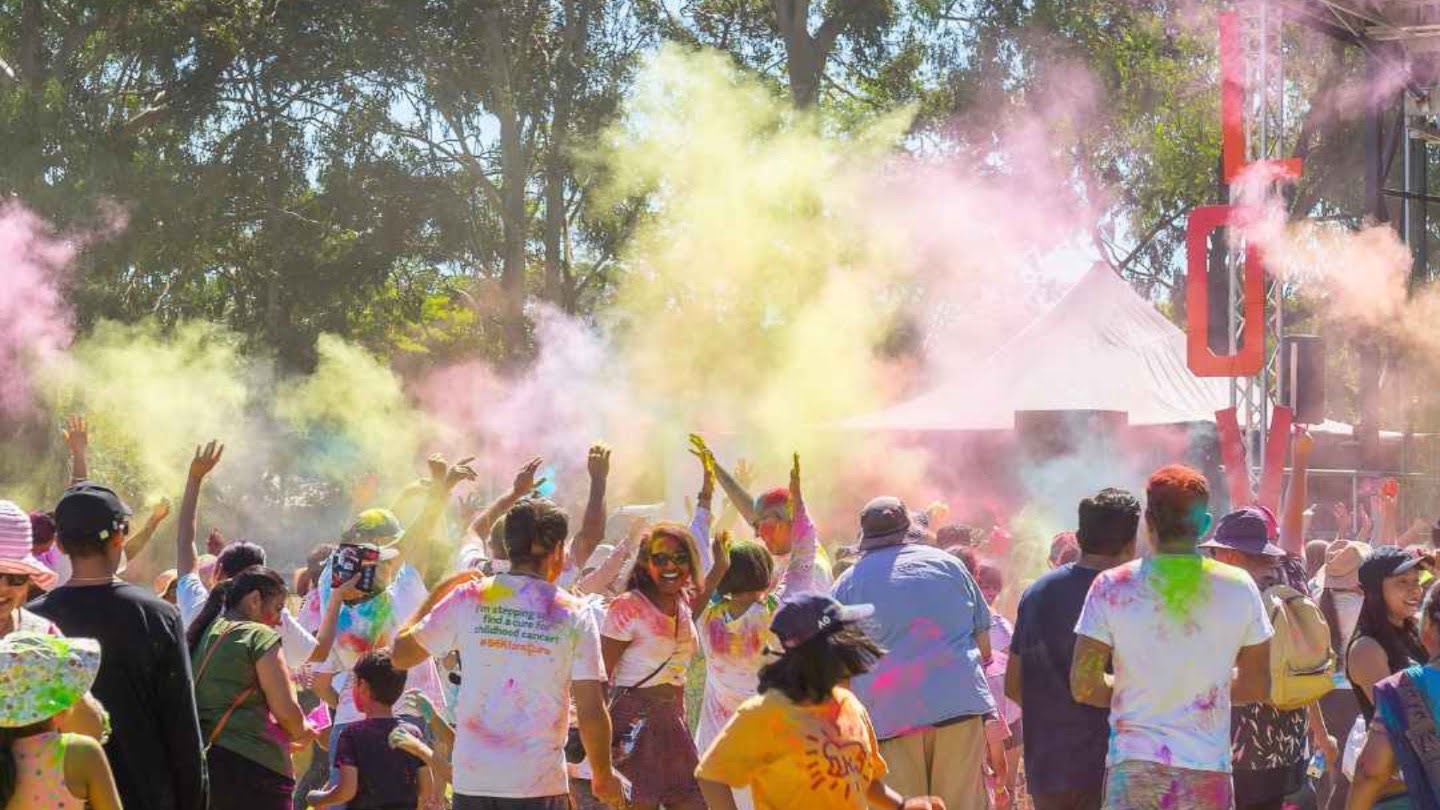Durban Ratha-Yatra – Making ISKCON Relevant
By Keshava Krishna Das | Apr 06, 2013
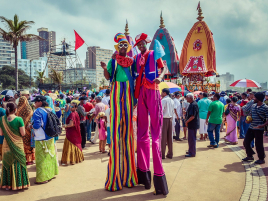
(Photos by Indradyumna Swami.)
How many of us wonder why, in spite of vigorous book distribution and innovative outreach we still appear irrelevant in society? What does it mean to be relevant? Have we generally consigned ourselves to just being isolated spiritual people with near impossible Vedic world objectives? Perhaps the Durban festival holds some clues.
If the service of book distribution and other forms of outreach are our frontline presentations of Krishna consciousness, are we truly aware of what interested persons will experience once they reach our temples or preaching centres? Will these places represent the vast length and breadth of Vaisnava and Vedic culture described in Srila Prabhupada’s books?
In most cases, such persons will probably see ashramas, some deity worship, and various service engagements to maintain Iskcon properties. Larger temples will have more variety of activities to witness. All such activities will centre on brahminical aims. Will such brahminical orientation be relevant for all who come? Clearly not.
In other words, we preach about big Vedic world objectives and explain how they are needed to help relieve modern society of prevailing social ills, but our ashramas and temples do not fully portray them. What persons usually see and experience is just a tiny part of living Vedic culture in action. Because of this, despite all answers contained within our books, we remain isolated idealists in the eyes of society.

The beautifully decorated chariots at Durban’s beach front
We ourselves can also be blamed for this, because at present our versions of Vedic culture is hardly relevance for say, a poorly paid gold miner, an employee at the waterworks or a highly trained musician schooled in Beethoven, Bach and Mozart. We outwardly preach, but we retain an isolation of what we preach – outward isolation.
With these restrictions in place, we wonder why important people and institutions hardly take us seriously sometimes. We can ask ourselves whether we can get ‘out of our isolation shells’ and actually volunteer to participate in local or national incentives that call for social cohesion, moral upliftment and shared human interests, even though at first these appear not to be very Krishna conscious for our ‘brahminical’ selves.
If we limit our participation in such schemes because they are ‘below’ our dignity, or are afraid of material allure, then we shall remain irrelevant. Devotees are citizens and on different levels of society, they can participate as concerned citizens. Situations like these present ‘networking’ potential for further interest in our larger Vedic message.

Indradyumna Swami with some of the South African dignitaries
In relation to South Africa, the government began a national initiative called NICSA (National Interfaith Convention of South Africa). They realised – as many other people do – that people of religion usually find it difficult (bipartisan) to cooperate on social issues or matters of faith. Iskcon South Africa signed up for this alongside all other denominations.
Furthermore, because Iskcon has an established major annual Festival Of Chariots held in Durban that promotes the same ‘above religion’ harmony, in line with our volunteered participation, this has already enhances our relevance. Now we are seen to be interested in helping with social cohesion. Doesn’t the Bhagavad-Gita verse 5.29 call for this? It is philosophically within our scope of involvement.

A moment of the spectacular stage program
Some devotees might wonder why an orchestra and stilt walkers are required? Let us suppose that the site on which our festival activities was held, were a self-governing city for example. We as Iskcon are running this city for four days. As within any city, matters of maintenance, security, refuse, hospitality, education, feeding and the rest, all have to be considered. Did not Vaisnava kings of the past also have to see to every aspect of society as well? Were such things beneath their dignity?
The Durban Philharmonic orchestra happened to be celebrating 30 years in existence. Our venue was to help with that. “How mundane…” some will say. Then what if the bulk of their time evolved around the holy names of the Lord, as Bhakti Bhrnga Govinda Maharaja sang? And that a choir from Kwa Mashu only ever sang Hare Krishna in each of their performances? This blend of vocals and orchestra with the holy name was magical.

BB Govinda Swami singing the Holy Name accompanied by the KZN Orchestra
On stage were assembled skilled musicians schooled in Classical and modern musical genres essentially appealing to euro-centric tastes. Tes, their medley had smatterings of Carmen, Thai Meditations, and Sinatra’s Strangers In The Night and the passionate My Way (Not God’s Way).
But this was intended for our diverse multi-racial audience. There was something relevant for them who may not find relevance in our ashramas. “These Hare Krishna people are not so isolated after all… they are useful members of society…” is the message that would have gotten across. Multifaith representatives held discussions in some of many other booths.

The harp providing sweet ambience to the chanting of the Hare Krishna Mahamantra
A child with an innocent sense of wonder would have seen a stilt walker and excitedly recalled seeing a “giant tall clown with really, really long legs walking about… at that Hare Krishna thing…” The police, brass bands, the VIP politicians, the municipal staff who enabled a prime location and so on, all engaged in Krishna’s service directly or indirectly – it was a microsm of Varnashrama-dharma in action – ableit for a short time.
This Festival Of Chariots demonstrated how humanity can socially converge above religious interests. The “Culturally Many, Spiritually One” heading is our bigger message, and given the chance to display workable harmony, the devotees needed to get out a little more. HH Indradyumna Maharaja helped local management to widen their scope.
There were some reservations among devotees – festival ideas were quite new. Optional wearing of civvies was meant to show how one does not have to be continually dressed in robes and saries to be ‘other worldly.’ Some other’s preferred that Lord Jagannatha be present on site. Yet others opined that helping with NICSA is politically bipartisan. And one of the main uncertainties was, “will we compromise ours or Srila Prabhupada’s standard?”

The Hind Brothers, one of the performer groups
As the first day of the festival passed, the sheer numbers of visitors for the parade and onsite presentations already caused some to conclude it was the “best ever” festival. The numbers continued over the next three days.
If a devotee wants to pursue politics as Balavanta Prabhu once tried years ago, this ‘Social Cohesion’ theme would form a relevant platform. With “culturally Many, Spiritually One” added to the mix we should expect a new type of politics to counter bipartisan left or right divides.
Some of us think that our Iskcon culture and lifestyle is too ‘other worldly’ or ‘detached’ to be relevant. Others think our purity will be compromised if we do like Durban did. But let us see how the two said Maharajas are not only dedicated to Srila Prabhupada and Iskcon, but they are still retaining inner purity while outwardly innovating to make us relevant. If they can help pull this off, and so can others as well.

The festival tent was packed with thousands of people
The lessons from this success are that we need to believe that Vaisnava and Vedic culture can and does play a part in any level of society – including mineworkers and classical musicians. This means having the confidence to volunteer our participation in matters of broadcasting, education and other arms of state or
institutional influence, regardless of which political party is in charge. It may be easier in some countries than others.
In all of our attempts at participation, we will make friends with people who matter and can make things happen. This can enable unexpected primetime or prominence for us. When things start to move for us in this fashion, we will know that we have become relevant. Such relevance can multiply Krishna conscious exposure more than we thought possible.



